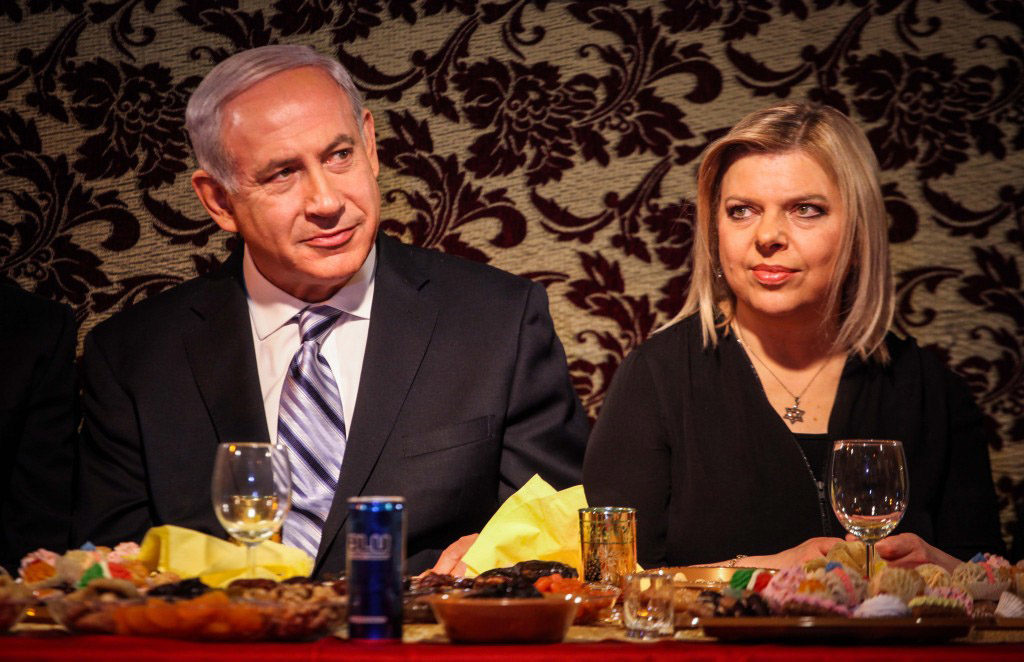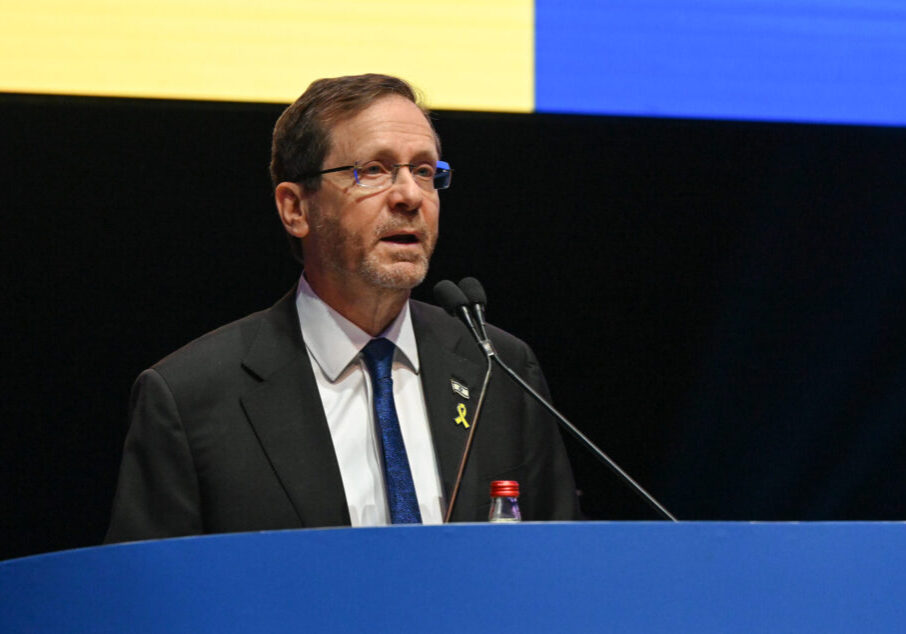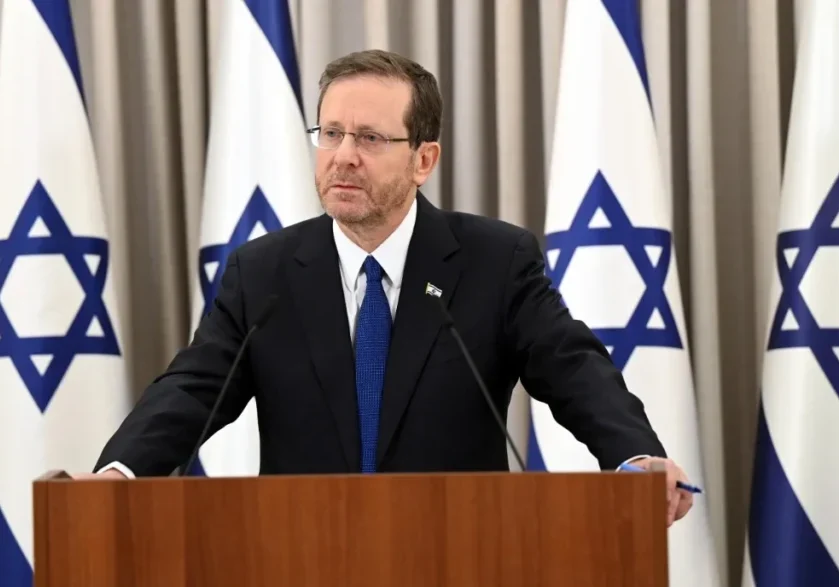Australia/Israel Review
Bibi’s media troubles become legal troubles
Feb 1, 2017 | Amotz Asa-El

Amotz Asa-El
True to his habit of responding to tough questions with catchy phrases, Prime Minister Binyamin Netanyahu reassured a group of perplexed supporters by repeating the same line he had been telling the media for weeks: “There will be nothing, because there is nothing.”
“Nothing” in this case referred to police investigations of two separate affairs: one involving the kind of suspicions politicians frequently face, featuring millionaires, favours and some luxuries, and the other involving a much more unusual allegation, a Faustian bargain with a press baron involving a mass-circulation daily’s political line and its main competitor’s sources of income.
The generous millionaires at play are Israeli Hollywood producer Arnon Milchan and Australian gambling kingpin James Packer.
The former is reported to have supplied respectively the Prime Minister and his wife Sara, with thousands of dollars’ worth of high-quality cigars and champagne on a monthly basis over a period of some seven years. The latter allegedly footed hotel, flight and music-show bills for Netanyahu’s son, Yair.
Netanyahu’s attorneys claim Milchan’s presents were but the normal gestures of an old friend while Packer’s were made to an adult private citizen and as such can’t be placed on the Prime Minister’s political bill.
Netanyahu’s supporters are confident the probe will fail to vindicate news leaks about the alleged amounts and frequencies of the gifts, and that indictments are therefore unlikely. Yet besides their potentially excessive size, the presents were allegedly given in troubling contexts as well.
Packer is reportedly seeking a licence to establish casinos, currently illegal in Israel, a quest that demands legislation and would entail a showdown with Netanyahu’s religious coalition partners. Milchan reportedly faced difficulties renewing his long-term visa to the US, and Netanyahu has reportedly discussed Milchan’s needs with outgoing US Secretary of State John Kerry.
While these allegations were being probed by one set of police investigators, another was looking into the entirely different suspicions involving Netanyahu’s troubled relationship with Israel’s most influential daily, Yedioth Ahronoth – whose name means “latest news”, and which Israelis refer to simply as “Yedioth,” or “news.”
A middle-brow tabloid, Yedioth had dominated Israel’s print media for decades when Netanyahu first became prime minister in 1996.
The paper’s domination was on every level: circulation, revenue, and influence. Blending well-informed reporters and sharp-penned commentators with simply written sections on everything from sports and motoring to fashion and food, it had become what it set out to be: everyone’s newspaper.
The enmity between Netanyahu and Yedioth apparently began when, in response to an unflattering profile of his wife Sara, Netanyahu wrote to the paper’s publisher, Arnon “Noni” Mozes, that he was cancelling his subscription.
It was a declaration of war. For the following two decades, Yedioth has been generally perceived as crusading against Netanyahu and supporting his successive rivals, from former prime ministers Ehud Barak, Ariel Sharon and Ehud Olmert to current opposition leaders Itzhak Herzog and Yair Lapid, the latter of whom – incidentally or not – was among Yedioth’s leading columnists.
What by now was already an ugly, but still conventional war, soon went nuclear, when Netanyahu supporter and American gambling tycoon Sheldon Adelson established and continuously funded a competitor that quickly brought Yedioth to its knees.
Called Israel Hayom, meaning “Israel Today,” the paper was laid out almost identically to Yedioth, hired several well-known reporters and columnists, said from the onset that it would be distributed free of charge, and has consistently covered Netanyahu favourably.
After Israel Hayom was launched in 2007, just when the global print media was firing thousands and losing billions, Yedioth‘s already-steady loss of subscribers intensified while advertising revenues plummeted, as many businesses opted for its new competitor’s lower rates and increasing circulation.
Still well connected, Yedioth inspired several lawmakers to introduce a bill in 2014 that would ban a daily newspaper permanently being distributed free of charge, arguing that this was a form of commercial dumping. Backed by legislators not only from the left, but also from Netanyahu’s rivals on the right, including current Education Minister Naftali Bennett of the Jewish Home party, the bill passed a first reading but then stalled.
Now, as details emerge from the investigations in which police have questioned at length, separately, Netanyahu and Mozes, it turns out that while this war was raging across the political battlefield, its commanders were apparently meeting behind the scenes, like a pair of exhausted boxers fallen in each other’s arms.
The deal Netanyahu and Mozes allegedly explored was that the latter will see to it that Yedioth would change its anti-Netanyahu line while the former would pass the bill to ban the free distribution of a daily paper, and Israel Hayom would cease publication of its weekend news supplement.
According to indirect and selective quotes leaked from taped meetings that investigators found on the smartphone of a former Netanyahu aid, Mozes promised in return to hire pro-Netanyahu writers and to generally “take good care” of the prime minister – meaning create favourable coverage.
The question, then, is where all this leads.
Over the past two decades every Israeli prime minister has faced police investigations for assorted corruption charges, but only one – Ehud Olmert – was indicted.
Ehud Barak’s campaign financing was investigated but cleared, and Ariel Sharon’s campaign was found guilty of financial violations, but he personally was cleared. Sharon was also cleared of allegations that a businessman bribed him by hiring his son for an unreasonably high salary.
Netanyahu, too, faced assorted charges along the years, ranging from hiring in 1996 a particular Attorney-General in cahoots with an indicted political ally, to his failure to hand over to the state gifts he received from world leaders as prime minister. None of these allegations produced indictments.
Understandably, then, many now suspect that the current excitement will also end up as a storm in a teacup.
On the legal plane this may well prove true, even in the Yedioth case, because the Netanyahu-Mozes dialogue never produced an actual deal, least of all one that was executed, even though what they explored indeed contained elements that look like bribery: financial benefit for the publisher, whose main competitor would lose revenue, in turn for political benefit for the prime minister, whose major journalistic opponent would transfigure into a supporter.
Chances are, therefore, that even if this affair reaches the court, the judges will dismiss it for lack of sufficient evidence that any exchange of favours – bribery – actually occurred. The legal situation will become clearer when the tapes become public and after the police complete their investigation, which according to Israel Police Commissioner Roni Alsheikh, “will not be long.”
The political situation will also remain foggy until the legal situation clears.
For now, no one is challenging Netanyahu from within his party or even from his coalition. Talk of a potential, alternative coalition was quickly dispelled by Interior Minister Aryeh Deri, leader of the ultra-Orthodox Shas faction, a key component of the governing coalition, who said that in case Netanyahu resigns, his party will demand an early election.
Similarly, Education Minister Bennett said, in the name of his Jewish Home faction, “you don’t topple a government for cigars.” Though he conveniently ignored the larger of the two scandals, Bennett’s message, that for now Netanyahu’s allies were circling the wagons around him, was clear.
One sector, however, is already shaken to the foundation by what has so far been reported: the media.
A major publisher’s readiness to compromise a major daily’s coverage, to deal in its writers’ views and to sell its political line, may result in the removal, one way or another, of the 64-year-old Noni Mozes from Yedioth‘s day-to-day management. Some are even suggesting new legislation that will make it mandatory to raise a Chinese Wall between a news organisation’s commercial administration and its editorial operations.
At the same time, Netanyahu’s eagerness to gather influence over assorted news organisations may reach its limit in the aftermath of this affair.
Netanyahu has apparently been dragging his feet on the execution of an endorsed reform of the Israel Broadcast Authority, frustrated that it does not allow him to exert control over staffing. Prior to that, he reportedly hoped to impact the work of the private, and politically-biting Channel 10 TV, where his friend, Arnon Milchan, is a minority stake holder, and another friend of his, cosmetics billionaire and World Jewish Congress President Ron Lauder, was previously a majority stake holder.
At this writing, most pundits expect Netanyahu to survive these affairs legally and politically, albeit bruised – with many Israelis taken aback by the addiction to luxury living that the allegations suggest.
Journalistically, however, Netanyahu may end up with a Pyrrhic victory in which he knocked out a publisher whom he mistook for his archrival, only to realise that the rival he was really after – the Israeli press as a whole – is alive, well, and more belligerent than ever.
Tags: Israel






